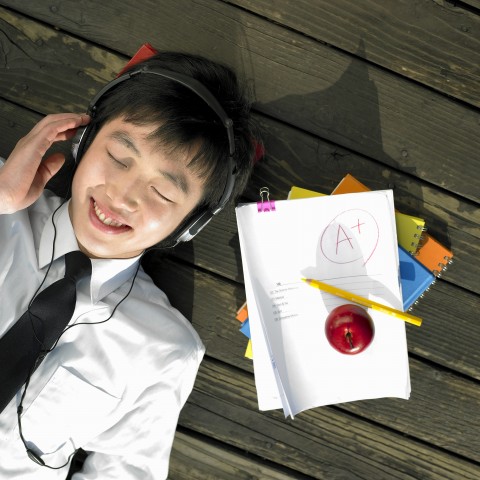
No matter how good you are, mistakes are inevitable, especially when you’ve just started learning Japanese. There’s nothing wrong with making mistakes, but who wants to be *THAT* foreigner who makes awkward mistakes when speaking to Japanese people? In this JapanesePod101 Blog post, we’ll give you a heads up so that you can be aware of common mistakes people make, which will make your Japanese language learning experience a lot easier.
1. Don’t Attach -san to Your Own Name!
One of the first things English speakers learn in Japanese is the name suffixes used when addressing other people. The most common one is -san, which we attach to people’s names to show respect. -San corresponds with “Mr.” and “Mrs.” when referring to other people. Unlike the English Mr. or Mrs., though, you can attach san not only to the first name but also to the family name. Because we use -san to show respect for others, you should never use it to refer to yourself.
When teachers teach Japanese, they refer to their students as “so and so san.” For example, Jennifer San, or Muhammad San. Students get used to hearing their names the way the teacher is saying it, so they start referring to themselves that way too. But just remember, you should never use -san when referring to yourself.
Click here to learn how to introduce yourself in Japanese for FREE!
2. Learn Your Long Vowel
In Japanese, there is a big distinction between long vowels and short vowels. In fact, the distinction is so big that the length of a vowel can change the meaning of a word! This is a very common pronunciation mistake. Beginners often ignore the double vowels in Japanese words and shorten them.
Saying Japanese long vowels correctly is an issue of timing. For example, The Japanese word for “grandmother” is おばあさん (pronounced O-BA-A-SAN). Japanese learners often shorten the long vowel BA-A and say おばさん (O-BA-SAN). The problem is, おばさん (O-BA-SAN) means “aunt,” not “grandmother.” In this case, not only is the pronunciation incorrect, but by shortening the vowel, you change the meaning of the word.
Another example is the Japanese word for courage, ゆうき (pronounced YU-U-KI). Beginners often leave out that extra U sound, and they end up saying ゆき (YU-KI) which means “snow.” Now, these two mistakes might be harmless and maybe even funny, but there are plenty of other Japanese words that sound almost the same, and saying them in the wrong situation might confuse, disrespect, or even offend the person you are speaking to.
Check out this FREE Video introduction to the basics of Japanese Pronunciation.
3. Watch Your Politeness Level

You probably already know that Japanese has different politeness levels. Which one you use depends on the age and status of the speaker, the listener and the relationship between them. Communication between any two people in Japan is heavily influenced by aspects such as age, sex, relationship, and relative status. Many of the difficulties that Japanese learners have are not due to problems with the language itself but are more the result of cultural differences.
It’s really important to remember to speak politely to people who are older than you or people of higher social status than you, as well as people who you don’t know. People who study Japanese are taught the formal language first. But those who learn mostly from friends or from anime might only pick up informal language. Keep that in mind, and be careful about making that switch between levels when it’s appropriate. And when it doubt, speak formally.
4. Watch Your Gender
Another really interesting aspect of Japanese is that sometimes men and women use different language. Sentence endings, word choice, and intonation may differ between men and women. In our experience, this is something that male non-native speakers have to be especially careful of. A majority of Japanese teachers are female, And if a male student is learning from a Japanese female friend or partner, he runs the risk of sounding feminine if he starts to copy the speech patterns that he hears. This is not such an obvious thing; in fact, it’s very subtle. Fundamentally the words may be the same, but the intonation will differ. What helps is listening to a lot of different styles in Japanese. Just listen to Japanese spoken by all kinds of speakers and eventually you’ll start to pick up on the differences between male and female speech.

5. Watch Out for Similar Sounding Words.
Because there are a relatively small number of possible sounds in Japanese, many words are exactly the same or almost the same but with different meanings. As a beginner in Japanese, it can be easy to mix up similar sounding words. Some infamous examples include: kirei (きれい), meaning “pretty” vs. kirai (きらい), meaning “hated”; kawaii (かわいい), meaning “cute” vs. kowai (こわい), meaning “scary”; and hiroi (ひろい), meaning “spacious” vs. hidoi (ひどい), meaning “terrible,” for example. Pay attention to the length of the vowels, the order of the sounds and try to remember the right words to use.









